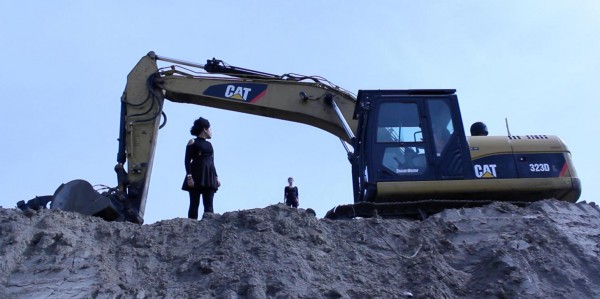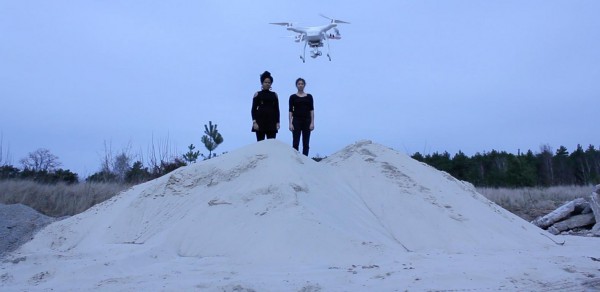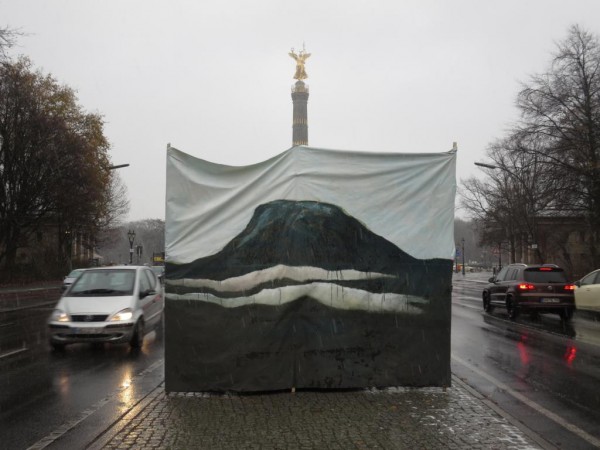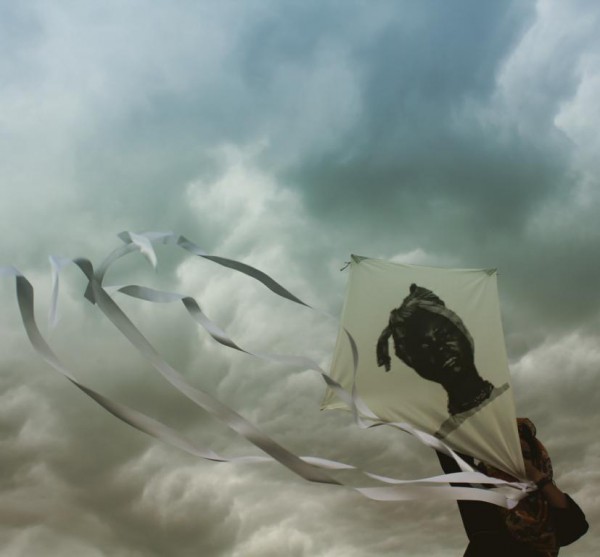
Bikoro & Anaïs Héraud-Louisadat, Squat Monument, 2016

Bikoro & Anaïs Héraud-Louisadat, Squat Monument, 2016

Bikoro & Anaïs Héraud-Louisadat, Squat Monument, 2016

Bikoro & Anaïs Héraud-Louisadat, Squat Monument, 2016
Artistic Reconsiderations on Decolonizing Archives in Tempelhof-Schöneberg
A Project by Nathalie Anguezomo Mba Bikoro, Anaïs Héraud-Louisadat (Squat Monument)
curated by Suza Husse und Andrea Caroline Keppler
in the framework of UNDISCIPLINARY LEARNING – Remapping The Aesthetics of Resistance
8 September 2016: 18 h Opening, 19 h Artist Talk
TRÜMMERBERG KILIMANJARO assembles a performative archive that interweaves the urban traces of German colonialism and how it is expressed culturally and economically, as well as the migration context of Berlin’s Tempelhof-Schöneberg district. In the exhibition at DISTRICT and the mobile (hi)story-kiosk, which takes place at specific locations in the neighborhood, these traces encounter the voices and stories of protagonists of the anti-colonial resistance movement in Namibia and Germany.
TRÜMMERBERG KILIMANJARO brings together the results of the artistic research project Squat Monument for the first time. Developed by the artists in 2015, the project initiated new forms of commemorative culture in order to question official historical narratives. Nathalie Anguezomo Mba Bikoro and Anaïs Héraud-Louisadat conceive of the Trümmerberg Marienhöhe in Tempelhof as a cultural encyclopedia of buried knowledge, while the metaphorical landscape of the mountain of Kilimanjaro – which was a symbol of German colonial power particularly during the first half of the twentieth century(*) – is squatted and re-appropriated through this knowledge. Squatting the monument means the activation of archives through alternative perspectives and untold narratives: when archives transform themselves and poetic gestures demand radical space.
TRÜMMERBERG KILIMANJARO is presented within the framework of UNDISCIPLINARY LEARNING – Remapping The Aesthetics of Resistance. Undisciplinary Learning takes the novel The Aesthetic of Resistance by Peter Weiss (1916-1982) as an impetus to question current knowledge politics at the intersection of artistic, political, and pedagogical practices. Education will be explored in the exhibition, urban interventions, encounters, and conversations as a mode of political imagination that recognizes heterogeneous forms of knowledge and integrates the body, the city, relationships, and the environment as places of learning.
PROGRAMM
8 September
TRÜMMERBERG KILIMANJARO
Artistic Reconsiderations on Decolonizing Archives in Tempelhof-Schöneberg
18 h Opening, 19 h Artist Talk
1 October
Kiosk Culture Decolonial Archives Tour
13 – 19 h Performative archive at different locations
Meeting points
13 h Sarotti Café, Mehringdamm 57
15.30 h Entrance S-Bahn Tempelhof
18 h District Berlin


